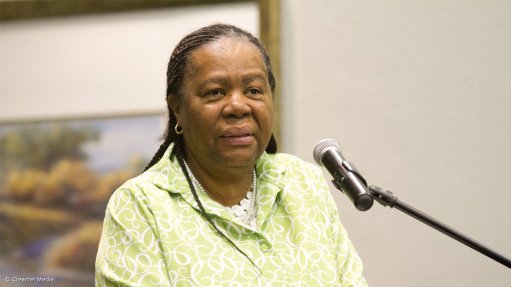
Science & Technology Minister Naledi Pandor
With only 17% of the world’s current protein source being ocean-derived, the blue economy not only holds significant potential for food security, but can also unlock further economic growth opportunities for South Africa.
According to Norway Foreign Affairs Deputy Minister Tone Skogen, this is why Norway and South Africa need to partner in developing maritime space, as it will ensure the sustainable harvesting of the countries’ abundant resources.
Skogen was speaking at the launch of the inaugural South Africa–Norway Science Week: Value Creation in Ocean Space, which took place in Pretoria, on Monday.
Science and Technology Minister Naledi Pandor echoed this sentiment, noting, however, that the marine environment was “extremely threatened at this time”.
She said that government needed to address the increased stresses imposed on the oceans, owing to human activities such as offshore drilling and oil spills.
She believed that South Africa and Norway’s existing portfolio of collaborative efforts in terms of research and developing innovation would assist in furthering blue economy ambitions.
lLLEGAL FISHING RESEARCH COLLABORATION
South Africa’s fishing industry, which operates from its 12 official fishing harbours, employs about 200 000 people and feeds 3.6-million people, generating R4.1-billion a year in revenue.
Illegal, unregulated and unreported fishing cost the global economy up to $26-billion a year, with Southern Africa losing about $5.6-billion.
To this end, Norway’s government in June signed a memorandum of understanding with the Nelson Mandela Metropolitan University in Port Elizabeth to establish an academic centre at the university that would be devoted to studies of and strategy development that contributed to the fight against illegal fishing in South Africa and globally.
The agreement involves funding of R50-million over five years, provided by the Norwegian government, to help establish a core of graduates with knowledge and expertise in the management of illegal fishing and to contribute to the development of effective strategies to tackle the issue.
Skogen added that the sustainable and healthy development of the oceans could be achieved only through comprehensive and collaborative research providing the correct tools. “Research is vital to everything we want to achieve . . . to unlock the secrets and mysteries of oceans [and] to understand the impact of human interference on the oceans.
“We need to reach out, connect and build new partnerships between the two nations to achieve better results,” she highlighted.
Norway is the second-largest exporter of fish and seafood, after China, raking in $8.8-billion in exports in 2015.